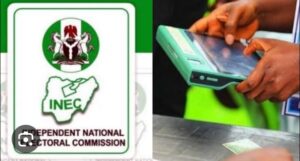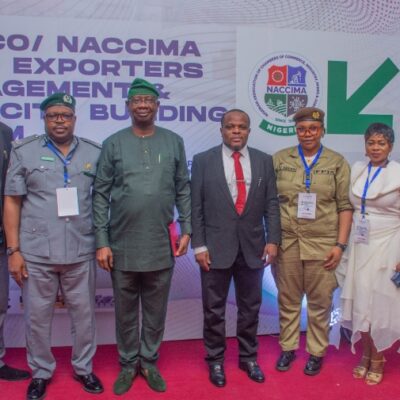
The Independent National Electoral Commission (INEC) has taken delivery of innovation technology tools aimed at ensuring better results management process, enhancing accuracy and creating a repository of election results.
The Chairman of the commission, Prof. Mahmood Yakubu, while speaking at the handover of the innovation technology tools on Thursday in Abuja, said the tools were facilitated by Development Alternatives Incorporated (DAI).
He said the support was designed to address five thematic areas, which included enhancing and strengthening planning and operational capacities; improving the commission’s internal communication and external engagements with stakeholders; enhancing the Electoral Institute’s capacity for training and research; assisting in the improvement of legal and policy frameworks for the conduct of elections; and enhancing the development and incorporation of technological innovations.
Yakubu noted that within the current electoral cycle, DAI has provided support towards capacity building, technical support, printing of non-sensitive reports and information flyers.
He stated: “We are glad that today, some of the tools developed in collaboration with DAI are being handed over to the commission. Among these are:
“The Collation and Returning Officers Management System (CROMS) intended to streamline, simplify and enhance the security, reliability and credibility of the recruitment process for collation and returning officers;
“The Election Results Management System (ERMS) which seeks to ensure a better results management process, enhancing accuracy and creating a repository of election results, something envisaged by Section 62 (1) and (2) of the Electoral Act, 2022.”
The chairman noted that other tools are the Media Monitoring and Analysis Tool intended to enhance the commission’s capacity to filter media coverage; and the Political Parties Financial Reporting and Audit System (PFRAS), which seeks to assist the commission to monitor political party finance more efficiently and effectively.
Yakubu pointed out that in developing these tools, DAI consultants worked closely with the Technical Team and Directing Staff of the commission.
He explained that the tools sought to respond to specific challenges encountered in the implementation of electoral activities, thereby bringing technology to enhance the commission’s operational effectiveness.
The chairman added that the tools, therefore, offer innovative solutions that could foster efficiency, speed, due diligence and trust in the electoral process.
Yakubu stressed that the tools were not specifically designed for a particular electoral cycle hence, their utility to future elections and electoral activities.
According to him, “In fact, the support to INEC under EU-SDGN Phase II covers the period 2022-2027 traversing two electoral cycles (2023 and 2027) and includes support to the National Assembly and the Judiciary, political parties, the media, civil society organisations and the promotion of inclusivity (women, youth and persons with disability).
“The commission will closely examine these tools with a view of adopting or tweaking them where necessary to meet the immediate and emergent challenges in the conduct of elections.”
The commission emphasised that its core electoral activities are still funded by the Federal Government as a sovereign responsibility, adding that it is only funding from government that is received and administered directly by the commission. Culled from Thisday.
Olapeju is a journalist and aviation reporter.





